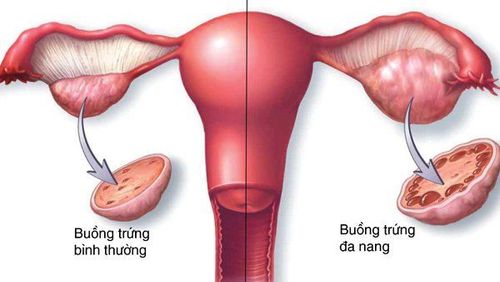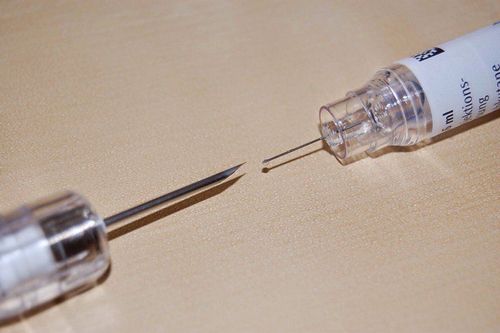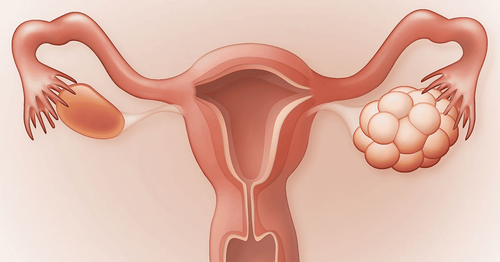This is an automatically translated article.
The article is professionally consulted by Specialist Doctor II Bui Minh Phuc - Department of Obstetrics and Gynecology - Vinmec Ha Long International Hospital.
The ability to conceive is greatly hindered when there are diseases related to the reproductive organs (vagina, uterus, ovaries, fallopian tubes). To a serious extent, diseases can lead to phenomena such as infertility because sperm cannot meet the egg for fertilization, the fertilized egg cannot be implanted in the uterus, the uterus is not functional. ability for eggs to nest.
1. Conditions for conception
Conception occurs only when the sperm comes in contact with the egg. It is the period of ovulation when the follicle released from the ovary is collected by the vas deferens and inserted into the lumen of the fallopian tube. When having sex on these days, sperm has a high chance of meeting the ovum in the outer 1/3 of the fallopian tube, when fertilization occurs. Five days after fertilization, the embryo moves from the fallopian tube to the uterus to implant and develop into a fetus. Therefore, a woman who wants to conceive naturally needs a healthy reproductive system, without disease problems in the vulva, vagina, uterus, fallopian tubes, and ovaries. Otherwise, conception will be extremely difficult.2. Diseases that hinder conception in women

Hội chứng buồng trứng đa nang gây cản trở việc thụ thai ở phụ nữ
Polycystic ovary syndrome: The disease causes testosterone and LH hormone disorders, making the follicles unable to develop, eggs cannot mature, so there is no ovulation. Since that causes symptoms of menstrual disorders, amenorrhea, hirsutism, acne, overweight, hair loss,... Irregular menstruation and reduced egg quality make it very difficult to conceive. 2 Ovarian Abscess: This is a serious condition that can cause infertility, caused by sexually transmitted infections that enter the uterus and spread to the ovaries and fallopian tubes. The accumulation of pus in the ovaries reduces ovarian function, causing long-term damage. Endometriosis in the ovaries: is a phenomenon where the lining of the uterus grows outside the uterine cavity, changing the structure and anatomy of the ovaries and pelvis, affecting the ability to conceive. Ovarian cancer: A malignant tumor in the ovaries. Most patients with ovarian cancer are detected at a late stage, so they need surgery and chemotherapy. Premature ovarian failure is a phenomenon in which the ovaries age prematurely after puberty and before the age of 40. When experiencing this condition, women often have irregular menstrual cycles, osteoporosis, depression, anxiety and most dangerously, adversely affect reproductive health, even infertility. With reduced ovarian function, egg quality, conception and implantation are also less likely. Ovulation disorder: It is a phenomenon in which a woman does not have any disease in the reproductive system but ovulates irregularly, ovulates far apart or does not ovulate. It is necessary to do tests and ultrasound to diagnose and give appropriate treatment.

Các ống dẫn trứng có thể bị tắc một phần hay tắc hoàn toàn làm ngăn cản quá trình thụ thai

Gói khám, sàng lọc bệnh lý phụ khoa cơ bản giúp phụ nữ phát hiện và điều trị bệnh nếu có một cách kịp thời
When registering for the Basic Gynecological Examination and Screening Package, customers will receive:
Specialized gynecological examination Transvaginal Uterine Ovarian Ultrasound Transvaginal Breast Ultrasound Tests such as: Treponema pallidum rapid test, Chlamydia rapid test, taking samples for cervical-vaginal cytology, endoscopically stained bacteria (female vaginal fluid), HPV genotype PCR automated system. Total urinalysis by automatic machine. Vinmec's medical team are leading experts, highly qualified, dedicated and devoted to the benefit of patients. Comprehensive and professional medical examination, consultation and treatment services.
With over 18 years working in the field of obstetrics and gynecology. Formerly Deputy Director, Head of Obstetrics and Gynecology Department of Lac Viet Friendship Hospital. Regularly update new knowledge about obstetrics and gynecology. Doctor Bui Minh Phuc proficiently performs basic and specialized techniques of obstetrics and gynecology
Please dial HOTLINE for more information or register for an appointment HERE. Download MyVinmec app to make appointments faster and to manage your bookings easily.













